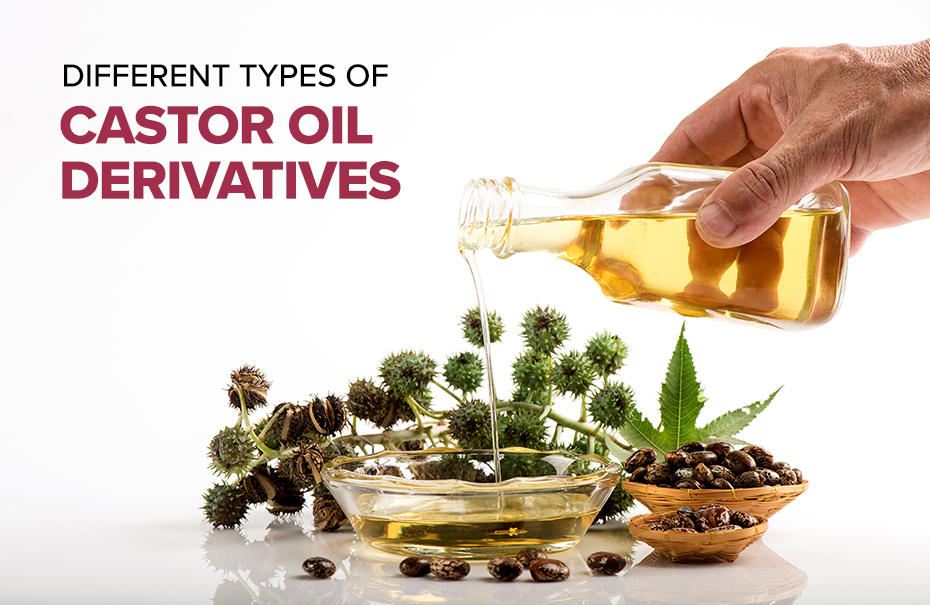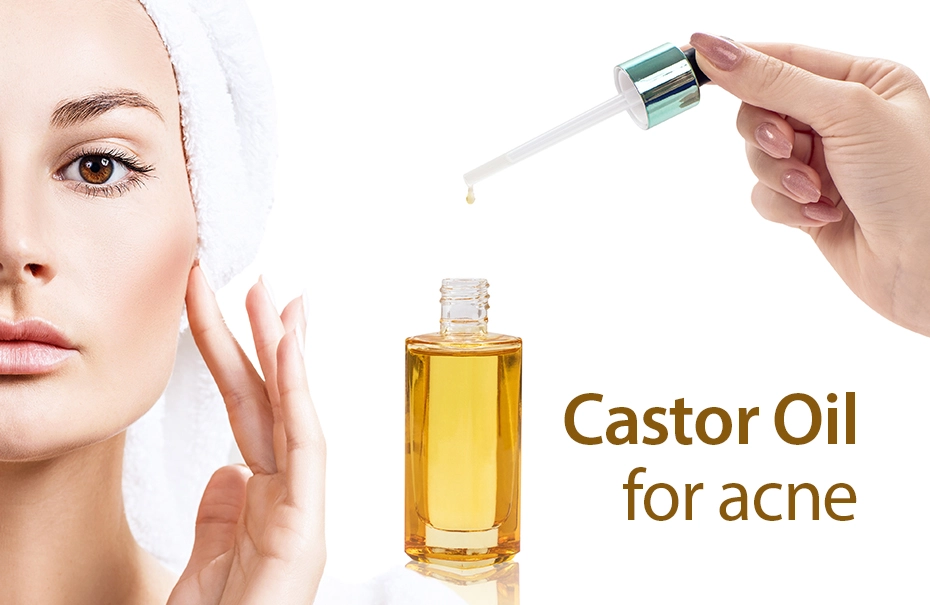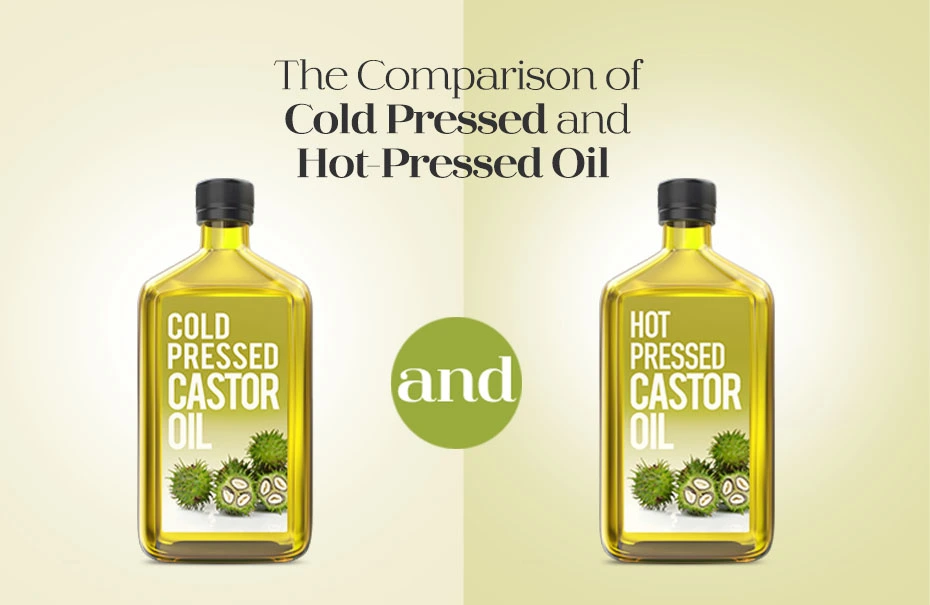Understanding Different Types of Castor Oil Derivatives

In the world of natural oils, castor oil stands out as a versatile and beneficial option with varied applications. Extracted from the castor bean plant (Ricinus communis), castor oil is renowned for its rich composition and numerous castor oil and its derivatives, each serving distinct purposes.
In this blog, we will explore the various types of castor oil derivatives, shedding light on their unique properties and applications.
Let us start by understanding Castor Oil:
Before going straight to its derivatives, let’s briefly understand the composition of castor oil. Extracted from the seeds of the castor bean plant mostly known as Ricinus Communis, castor oil is a triglyceride comprising predominantly of ricinoleic acid. This fatty acid is the key component responsible for many of the oil’s therapeutic properties.
Now let us explore the Castor Oil Derivatives:
1. Cold-Pressed Castor Oil
Extraction Process:
Cold-pressed castor oil is obtained by mechanically pressing castor beans without applying heat. This method helps retain the oil’s natural nutrients.
Properties:
This type of castor oil maintains a pale yellow color and a mild odor. It is known for its high concentration of beneficial fatty acids and nutrients.
Applications:
Cold-pressed castor oil is often preferred for cosmetic and medicinal purposes due to its purity and nutrient retention.
2. Hydrogenated Castor Oil
Manufacturing Process:
Hydrogenation involves the addition of hydrogen to castor oil, resulting in a solid or semi-solid, forming a thick powder-like consistency.
Properties:
Hydrogenated castor oil, commonly known as castor wax, exhibits increased stability and a higher melting point compared to regular castor oil.
Applications:
Castor wax finds applications in the cosmetic industry for its thickening and emollient (supple) properties in various formulations.
3. Deodorised Castor Oil
Manufacturing Process:
Deodorized castor oil is produced through a meticulous refining process that involves removing odor-causing compounds and impurities. This process enhances the overall purity and quality of the castor oil.
Properties:
Deodorized castor oil, often referred to as refined castor oil, is characterized by its neutral scent and color. The deodorization process eliminates the distinctive odor associated with unadulterated and pure castor oil, making it more versatile for various applications.
Applications:
Deodorized castor oil finds widespread use across diverse industries, owing to its improved sensory attributes. Some key applications include: Pharma Industry, Cosmetic & Personal Care Products, Food Industry
4. Jamaican Black Castor Oil
Processing Technique:
Jamaican Black Castor Oil is traditionally made by roasting castor beans before pressing them. This process imparts a dark color and distinctive scent.
Properties:
Known for its deep color and nutty aroma, Jamaican Black Castor Oil retains its rich nutrient profile, including a high concentration of ash content.
Applications:
Widely acclaimed for its potential in promoting hair growth and nourishing the scalp, Jamaican Black Castor Oil is a popular choice in the beauty and wellness industry.
5. Dehydrated Castor Oil
Drying Process:
Dehydrated castor oil undergoes a process to remove moisture content. This castor oil derivative is also known as low moisture or dry castor oil.
Properties:
Compared to unadulterated castor oil, dehydrated castor oil has low-moisture content, has enhanced stability increasing the shelf life and viscosity.
Applications:
Dehydrated castor oil finds use in industries like cosmetics, lubricants, adhesives etc.
Castor oil and castor oil derivatives products present a vast array of options catering to diverse industries and applications. From the purity of cold-pressed castor oil to the convenience of dehydrated castor oil powder, the types of castor oil derivatives have their unique set of properties that make them suitable for specific purposes.
As consumers increasingly embrace natural and versatile products, castor oil and castor oil derivatives continue to gain popularity across industries. Whether you’re looking for a nutrient-rich oil for cosmetic formulations or a stable ingredient for industrial applications, understanding the different types of castor oil derivatives products empowers you to make informed choices that align with your specific needs.
Incorporating castor oil and castor oil derivatives into your beauty and wellness routine or industrial processes can open the door to a world of benefits, harnessing the power of nature for a multitude of purposes.
For the best quality castor oil and castor oil derivatives products, Ambuja Solvex stands as one of the leading castor oil and castor oil derivatives manufacturers in India. Contact now to learn more and get pure castor oil and castor oil derivatives.



